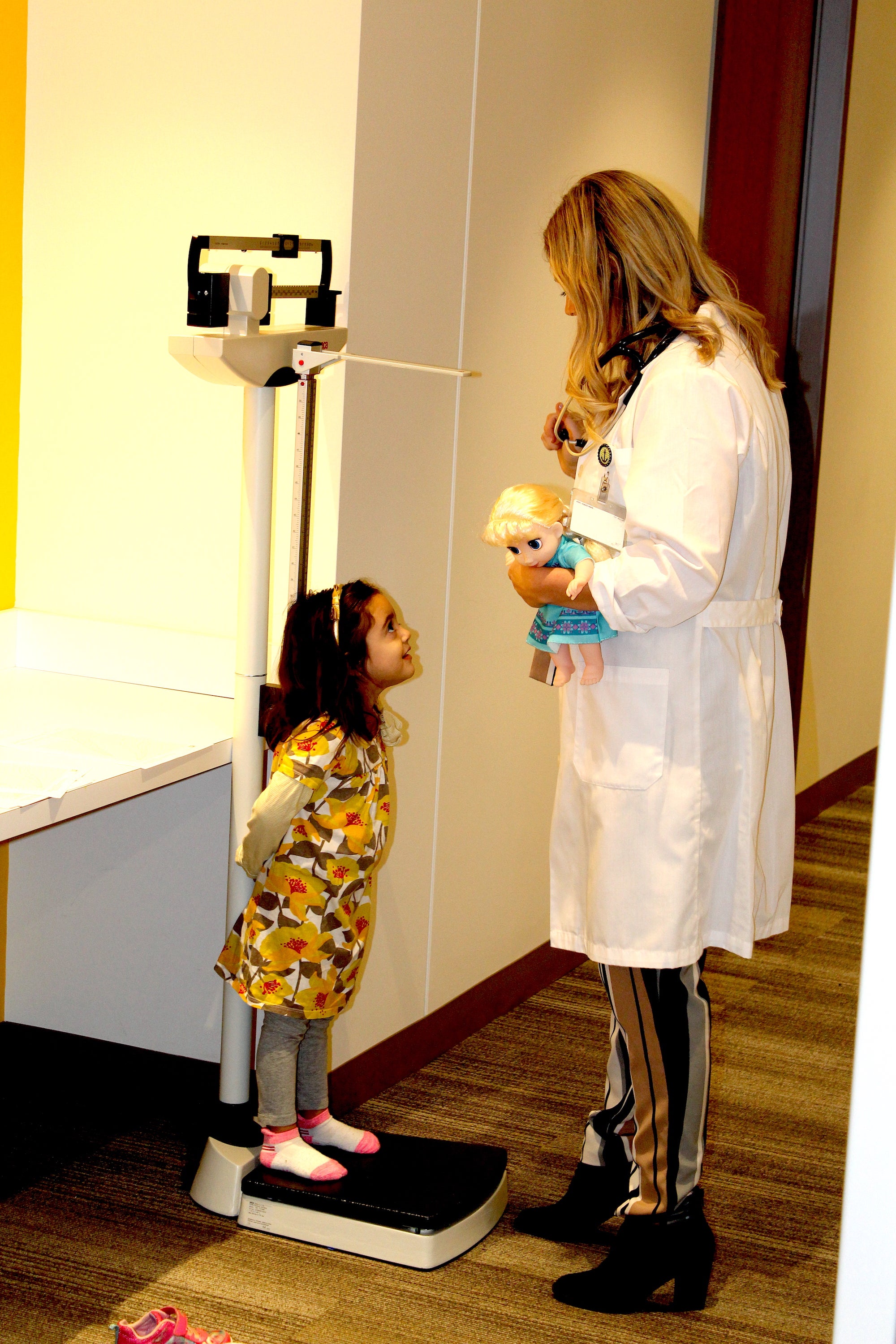Students compile medical, family histories, conduct physical assessments
Students in the University of Rhode Island nurse practitioner programs recently took what they have learned in the classroom into the exam room, performing full physicals on volunteer children on two recent Saturday mornings at the Nursing Education Center in Providence.
The students, enrolled in the Family Nurse Practitioner and Psychiatric Mental Health Nurse Practitioner programs, recruited the young children from among their friends and family members to take part in the exercise. The students interviewed the patients and their parents to gather a full medical and family history before conducting a comprehensive physical exam.
Twenty URI students took part in the program, which helps them apply the lessons they learn in the classroom to a real-life scenario, according to Denise Coppa, associate professor and Director of Advanced Practice for the College. Coppa and other professors monitor the exams by video in an adjoining room, allowing them to provide immediate feedback on the performance.
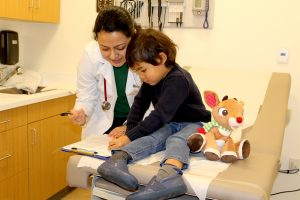 “This gives the students great practice on compiling a patient’s history, conducting a physical exam and developing a full assessment of that patient,” Coppa said. “They benefit from practicing the physical exam as well as working on their communication skills with a patient. It gives the students real-world experience they can take with them.”
“This gives the students great practice on compiling a patient’s history, conducting a physical exam and developing a full assessment of that patient,” Coppa said. “They benefit from practicing the physical exam as well as working on their communication skills with a patient. It gives the students real-world experience they can take with them.”
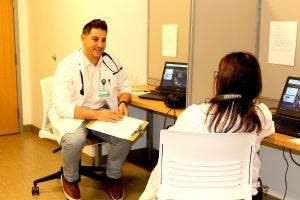 Family Nurse Practitioner student Brenna Maynard examined the five-year-old daughter of a family friend, beginning by asking the child and her mother detailed questions about medical history, homelife and school. She probed her patient with questions to determine her level of mental and emotional development before conducting a physical exam. The program gives her invaluable practice working with patients, she said, especially younger patients.
Family Nurse Practitioner student Brenna Maynard examined the five-year-old daughter of a family friend, beginning by asking the child and her mother detailed questions about medical history, homelife and school. She probed her patient with questions to determine her level of mental and emotional development before conducting a physical exam. The program gives her invaluable practice working with patients, she said, especially younger patients.
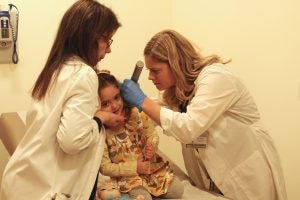 “I prepared a lot for it, but when you get in there with a parent and child, it’s very different. You never know what you’re going to get with a young child, but you just have to roll with it,” Maynard said. “Without the interaction with a child, it would just be theoretical. Being able to have that first-hand experience just makes it real.”
“I prepared a lot for it, but when you get in there with a parent and child, it’s very different. You never know what you’re going to get with a young child, but you just have to roll with it,” Maynard said. “Without the interaction with a child, it would just be theoretical. Being able to have that first-hand experience just makes it real.”
Fellow Family Nurse Practitioner student Jeremy DiBiasio was working with a child patient and a parent for the first time. As much as you prepare in the classroom, there is no substitute for the real thing, when you have to think on your feet and perform in real time.
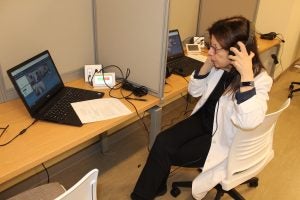 “It’s a great experience to be actually hands-on. You just can’t get that experience unless you’re in it,” DiBiasio said. “We get all the education and information in class, but to be able to apply those skills in a real-world setting is invaluable.”
“It’s a great experience to be actually hands-on. You just can’t get that experience unless you’re in it,” DiBiasio said. “We get all the education and information in class, but to be able to apply those skills in a real-world setting is invaluable.”
In addition to the Family Nurse Practitioner and Psychiatric Mental Health Nurse Practitioner programs, the URI College of Nursing graduate offerings also include Adult Gerontological Nurse Practitioner, a Ph.D. program, and Doctor of Nurse Practitioner programs online and in-person. Visit the college’s website for more information and to apply.

